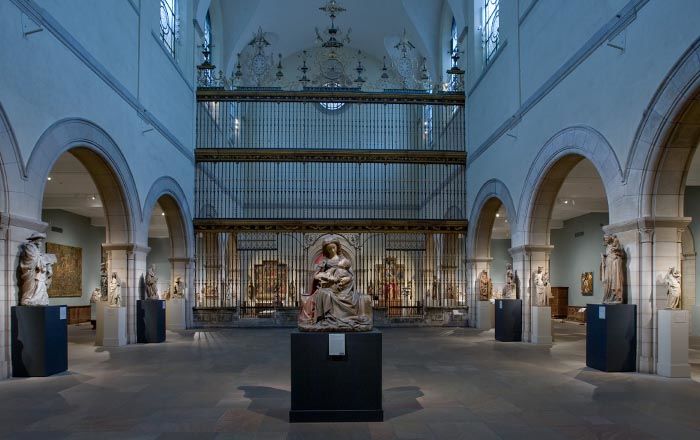Returned to lender The Met accepts temporary loans of art both for short-term exhibitions and for long-term display in its galleries.
Drawing of Job and His Family Represented as Heraclius and His Family
Not on view
Heraclius (r. 610–41), the most celebrated Byzantine emperor of the seventh century, suppressed the Sasanian Persian army’s advance on the Byzantine Empire’s southern provinces, reclaiming Jerusalem in 630, only to lose much of the territory to Arab advances during the final years of his reign. Under Heraclius, Greek replaced Latin as the official language of the state, signifying the importance of Byzantium’s southern territories. His efforts toward religious accommodation made him a hero in Islamic literature.
On this manuscript page, Job stands to the left in royal dress with his daughters. Job’s regained wealth and stature as described in the eponymous biblical book is emphasized by his contemporary Byzantine courtly costume. Similarities with images of Heraclius suggest that this depiction of Job may have been modeled on representations of the popular Byzantine emperor.
Due to rights restrictions, this image cannot be enlarged, viewed at full screen, or downloaded.

